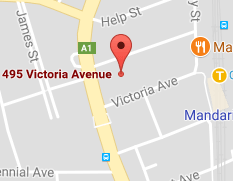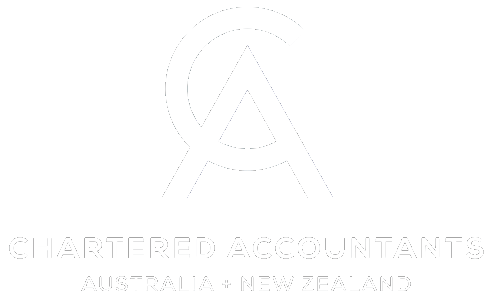The Federal Budget has been delivered and has focused on continuing to stimulate the economy out of the COVID-19 induced recession. The Government has emphasised spending in order to bolster economic recovery.
As with all Budgets, these are announcements only and have not been legislated. The details are still to be worked through, and both Houses of Parliament need to pass legislation before the announcements take effect.
The key personal, superannuation and business-related tax highlights of last night’s Budget are summarised below:
1. Personal income tax measures
The Government announced that there will be no changes to its previously legislated tax cuts program. Personal income tax brackets will therefore remain as set out below:
Tax rates and thresholds
|
Rate |
2021-2023 |
2024-2025 onwards |
|---|---|---|
|
0% |
$0-$18,200 |
$0-$18,200 |
|
19% |
$18,201-$45,000 |
$18,201-$45,000 |
|
30% |
- |
$45,001-$200,000 |
|
32.5% |
$45,001-$120,000 |
- |
|
37% |
$120,001-$180,000 |
- |
|
45% |
$180,001+ |
$200,001+ |
In addition, the Low and Middle Income Tax Offset (“LMITO”) of up to $1,080 originally planned to finish in 2020-21 will be extended out for a further 12 months up to 30 June 2022. Retaining this offset provides additional support for those with a taxable income of less than $126,000.
Individual tax residency test reformed
The individual tax residency rules will be modernised, with the introduction of a new primary test that deems individuals as Australian tax residents if they are physically present in Australia for at least 183 days during the tax year. Where the primary test is not met, secondary tests will apply based on a combination of physical presence and measurable, objective criteria. Changes to individual tax residency rules will provide more clarity for globally mobile employees.
Self-education expenses
The Government will remove the exclusion of the first $250 of deductions for prescribed courses of education. The first $250 of a prescribed course of education expense is currently not deductible. Removing the $250 exclusion for prescribed courses of education will reduce compliance costs for individuals claiming self-education expense deductions.
2. Business related tax measures
Temporary full expensing of Capital Assets
A further extension of the Instant Asset Write off (“IAWO”) rules will see all businesses with aggregated annual turnover of less than $5 billion entitled to deduct the full cost of eligible capital assets purchased from 7:30pm AEDT on 6 October 2020 (2020 budget night) and first used and installed by 30 June 2023. (extended out from 30 June 2022).
Loss Carry Back for companies
Companies with turnovers of up to $5 billion per annum that have suffered losses or will continue to be in a loss-making position are able to access refunds of taxes previously paid. These measures apply to losses made in the 2020 to 2023 financial years (previously finishing up in 2022). Taxes paid in respect of the 2019 financial year onwards are potentially eligible as a tax refund.
Employee Share Schemes
Employee share scheme (ESS) rules will be altered to remove 'cessation of employment' as a taxing point. This will apply to new ESS interests granted from the first income tax year after the date the legislation is enacted. ESS changes are intended to make it easier for businesses to offer ownership interests to attract and retain talent and remove the current poor outcomes that can arise due to taxation on termination of employment.
3. Superannuation measures
There were no material adverse changes to the tax policy settings for superannuation. This year's superannuation measures were specifically targeted at improving the retirement outcomes for women, lower income earners and older Australians.
Superannuation Guarantee threshold
The Government will remove the current $450 per month minimum income threshold, under which employers are not required to pay superannuation guarantee for employees. It will mean that people on low incomes will now receive some superannuation contributions for their work.
Superannuation work test
The Government will allow individuals aged 67 to 74 years (inclusive) to make or receive non-concessional (including under the bring-forward rule) or salary sacrifice superannuation contributions without meeting the work test, subject to existing contribution caps. The work test in respect of these contributions will be repealed.
Reducing the eligibility age for downsizer contributions
The Government will reduce the eligibility age to make (up to $300,000) downsizer contributions into superannuation from 65 to 60 years of age.
4. Other measures
Child care subsidies
From 1 July 2022, the Government will increase the Child Care Subsidy by 30 percent for those families with more than one child in childcare, resulting in a maximum subsidy of 95 percent of fees paid for their second and subsequent children. The Child Care Subsidy cap of $10,560 per child per year will also be removed.
Increased spending for aged care
The Government is allocating additional funding of $17.7 billion for a comprehensive aged care reform package in response to the Royal Commission into Aged Care Quality and Safety. This will include another 80,000 new home care packages, increased time nurses and carers spend with residents, support more than 33,000 new training places for personal carers, a new indigenous workforce and additional $10 per resident per day payment to enhance the viability and sustainability of the residential aged care sector.



